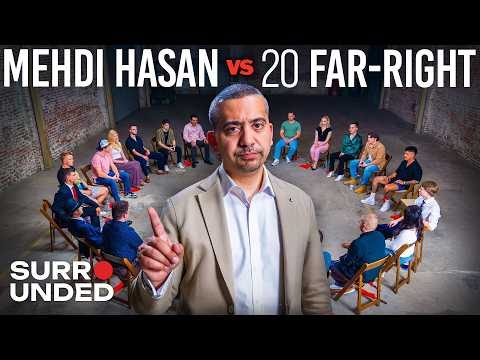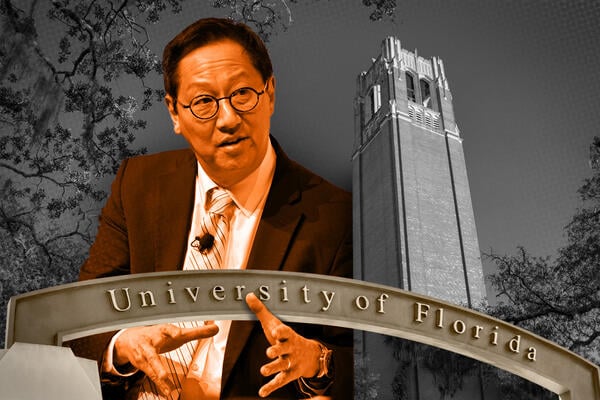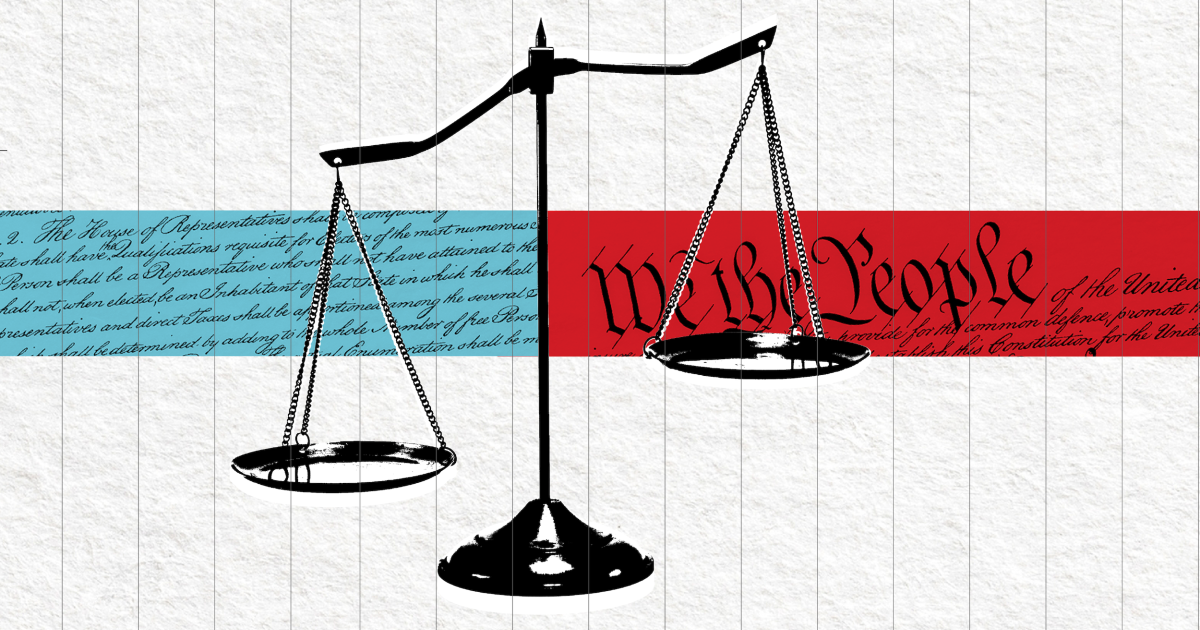by Jill Barshay, The Hechinger Report
January 12, 2026
Conservatives have long argued that unwed motherhood and single parenting are major drivers of poor student achievement. They contend that traditional two-parent families — ideally with a married mother and father — provide the stability children need to succeed in school. Single-parent households, more common among low-income families, are blamed for weak academic outcomes.
That argument has resurfaced prominently in Project 2025, a policy blueprint developed by the conservative Heritage Foundation that calls for the federal government to collect and publish more education data broken out by family structure.
Project 2025 acknowledges that the Education Department already collects some of this data, but asserts that it doesn’t make it public. That’s not true, though you need expertise to extract it. When I contacted the Heritage Foundation, the organization responded that the family-structure data should still be “readily available” to a layman, just like student achievement by race and sex. Fair point.
Related: Our free weekly newsletter alerts you to what research says about schools and classrooms.
With some help, I found the figures and the results complicate the conservative claim.
Since 2013, the National Assessment of Educational Progress (NAEP), often called the Nation’s Report Card, has asked students about who lives in their home. While the question does not capture every family arrangement, the answers provide a reasonable, albeit imperfect, proxy for family structure and it allows the public to examine how a nationally representative sample of students from different types of households perform academically.
I wanted to look at the relationship between family structure and student achievement by family income. Single-parent families are far more common in low-income communities and I didn’t want to conflate achievement gaps by income with achievement gaps by family structure. For example, 43 percent of low-income eighth graders live with only one parent compared with 13 percent of their high-income peers. I wanted to know whether kids who live with only one parent perform worse than kids with the same family income who live with both parents.
To analyze the most recent data from the 2024 NAEP exam, I used the NAEP Data Explorer, a public tool developed by testing organization ETS for the National Center for Education Statistics (NCES). I told an ETS researcher what I wanted to know and he showed me how to generate the cross-tabulations, which I then replicated independently across four tests: fourth- and eighth-grade reading and math. Finally, I vetted the results with a former senior official at NCES and with a current staff member at the governing board that oversees the NAEP assessment.
The analysis reveals a striking pattern.
Among low-income students, achievement differs little by family structure. Fourth- and eighth-grade students from low-income households score at roughly the same level whether they live with both parents or with only one parent. Two-parent households do not confer a measurable academic advantage in this group. Fourth-grade reading is a great example. Among the socioeconomic bottom third of students, those who live with both parents scored a 199. Those who live with just mom scored 200. The results are almost identical and, if anything, a smidge higher for the kids of single moms.
As socioeconomic status rises, however, differences by family structure become more pronounced. Among middle- and high-income students, those living with both parents tend to score higher than their peers living with only one parent. The gap is largest among the most affluent students. In fourth grade reading, for example, higher-income kids who live with both parents scored a 238, a whopping 10 points higher than their peers who live with only their moms. Experts argue over the meaning of a NAEP point, but some equate 10 NAEP points to a school year’s worth of learning. It’s substantial.
Family structure matters less for low-income student achievement
Still, it’s better to be rich in a single-parent household than poor in a two-parent household. High-income students raised by a single parent substantially outperform low-income students who live with both parents by at least 20 points, underscoring that money and the advantages it brings — such as access to resources, stable housing, and educational support — matter far more than household composition alone. In other words, income far outweighs family structure when it comes to student achievement.
Despite the NAEP data, Jonathan Butcher, acting director of the center for education policy at the Heritage Foundation, stands by the contention that family structure matters greatly for student outcomes. He points out that research since the landmark Coleman report of 1966 has consistently found a relationship between the two. Most recently, in a 2022 American Enterprise Institute-Brookings report, 15 scholars concluded that children “raised in stable, married-parent families are more likely to excel in school, and generally earn higher grade point averages” than children who are not. Two recent books, Brad Wilcox’s “Get Married” (2024) and Melissa Kearney’s “The Two-Parent Privilege” (2023), make the case, too, and they point out that children raised by married parents are about twice as likely to graduate from college as children who are not. However, it’s unclear to me if all of this analysis has disaggregated student achievement by family income as I did with the NAEP data.
Related: Trump administration makes good on many Project 2025 education goals
Family structure is a persistent theme for conservatives. Just last week the Heritage Foundation released a report on strengthening and rebuilding U.S. families. In a July 2025 newsletter, Robert Pondiscio, senior fellow at the American Enterprise Institute, a conservative think tank, wrote that “the most effective intervention in education is not another literacy coach or SEL program. It’s dad.” He cited a June 2025 report, “Good Fathers, Flourishing Kids,” by scholars and advocates. (Disclosure: A group led by one of the authors of this report, Richard Reeves, is among the funders of The Hechinger Report.)
That conclusion is partially supported by the NAEP data, but only for a relatively small share of students from higher-income families (The share of high-income children living with only their mother ranges between 7 and 10 percent. The single-parent rate is higher for eighth graders than for fourth graders.) For low-income students, who are Pondiscio’s and the scholars’ main concern, it’s not the case.
The data has limitations. The NAEP survey does not distinguish among divorced families, grandparent-led households or same-sex parents. Joint custody arrangements are likely grouped with two-parent households because children may say that they live with both mother and father, if not at the same time. Even so, these nuances are unlikely to alter the core finding: For low-income students, academic outcomes are largely similar regardless of whether they live with both parents all of the time, some of the time or only live with one parent.
The bottom line is that calls for new federal data collection by family structure, like those outlined in Project 2025, may not reveal what advocates expect. A family’s bank account matters more than a wedding ring.
Contact staff writer Jill Barshay at 212-678-3595, jillbarshay.35 on Signal, or [email protected].
This story about family structure and student achievement was produced by The Hechinger Report, a nonprofit, independent news organization focused on inequality and innovation in education. Sign up for Proof Points and other Hechinger newsletters.
This <a target=”_blank” href=”https://hechingerreport.org/proof-points-family-structure-student-achievement/”>article</a> first appeared on <a target=”_blank” href=”https://hechingerreport.org”>The Hechinger Report</a> and is republished here under a <a target=”_blank” href=”https://creativecommons.org/licenses/by-nc-nd/4.0/”>Creative Commons Attribution-NonCommercial-NoDerivatives 4.0 International License</a>.<img src=”https://i0.wp.com/hechingerreport.org/wp-content/uploads/2018/06/cropped-favicon.jpg?fit=150%2C150&ssl=1″ style=”width:1em;height:1em;margin-left:10px;”>
<img id=”republication-tracker-tool-source” src=”https://hechingerreport.org/?republication-pixel=true&post=114283&ga4=G-03KPHXDF3H” style=”width:1px;height:1px;”><script> PARSELY = { autotrack: false, onload: function() { PARSELY.beacon.trackPageView({ url: “https://hechingerreport.org/proof-points-family-structure-student-achievement/”, urlref: window.location.href }); } } </script> <script id=”parsely-cfg” src=”//cdn.parsely.com/keys/hechingerreport.org/p.js”></script>




